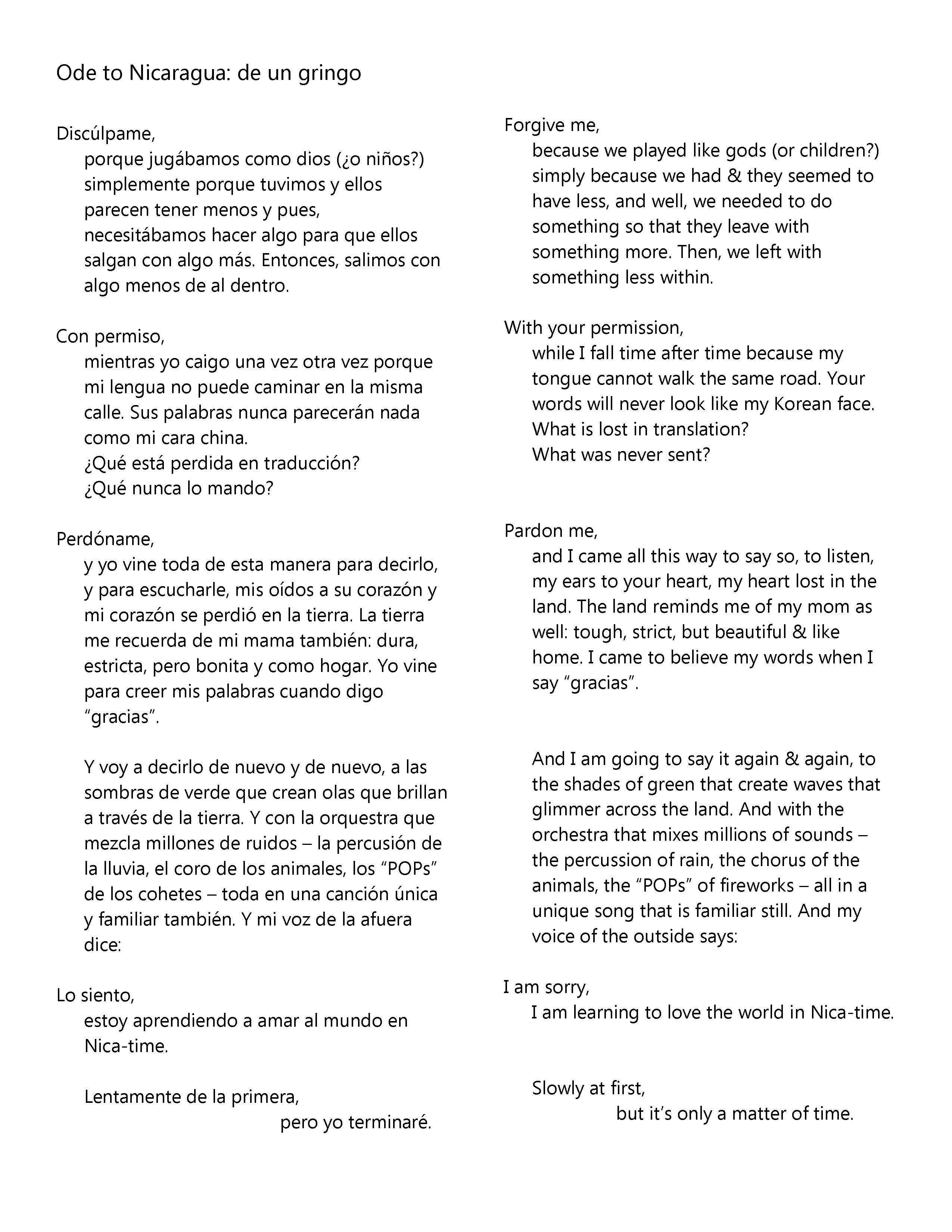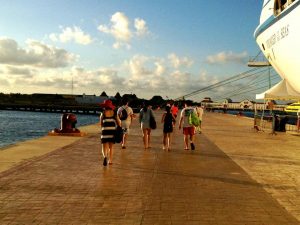Though I’m a positive person, I was really cynical/pessimistic at first, and for valid reasons. First, Delta lost most of our team’s baggage, as in EVERY checked bag for the 20+ people from the connecting Boston flight containing their clothing and necessary equipment for our work. These bags would continue to be lost for a few days, gradually returned from days 5-7 of the trip. Because of this, most of our plans were derailed. Our first three days were spent without a definite plan, without productive work, and without an answer to “what the heck were we doing in Nicaragua anyways?”. The worst was on the first Sunday when we were introduced to the town of El Hormiguero on their secondary school’s graduation day. We stopped by, were stared at, and felt generally bad about being a spectacle at another people’s celebration since we weren’t doing the work we were supposed to be there for.
But things got moving on Monday, after four days in country. We started seeing patients, more and more patients. Every day we broke our record of patients seen, except for our last day when we had to close up early to take inventory but were still on record-breaking pace. In six days we treated over 700 patients, gave hundreds of soaps and toothbrushes, and distributed so many condoms! This wasn’t without casualty. In addition to being dead-tired and sleeping by 8pm, at least half our team got sick (an understatement to the truly grim circumstances of no bags, eating primarily rice and beans, and being rather moist). Fortunately, I was fine, with the exception of possible parasites after being covered in mud after a “short walk” in a rainstorm. (But seriously, huge shout out to the CH team for enduring so well. I almost feel sorry for not being afflicted as many of you were.)
During this time, we bonded as a team (maybe too much), we played a lot of cards, and I soon found myself wanting to stay on our last day in Hormiguero. Despite the bugs, smelly latrines, and moist-ness to our clothes, there were so many treasures to the place; the smell of the earth after rain, the view of the Bosowas, Mantequilla cookies with fresh coffee, riding in the bed of a pick-up, being completely unplugged, and so many more.
To wrap up this post, we left Hormiguero, spent a couple nights in Granada for some real tourism (which needs an entirely separate post), and made our separate ways back to our homes. I’m eating less healthy, it is 70 degrees colder here in Chicago, but I’m happy to be home. But if given a few more nights in El Hormiguero, with my friends from Dartmouth and across Nicaragua, I would want it back in a heartbeat. There are things that you make happen because they are a once-in-a-lifetime kind of thing. And then there is something like this; something worth making happen again and again and again.
Hasta luego Nicaragua.

